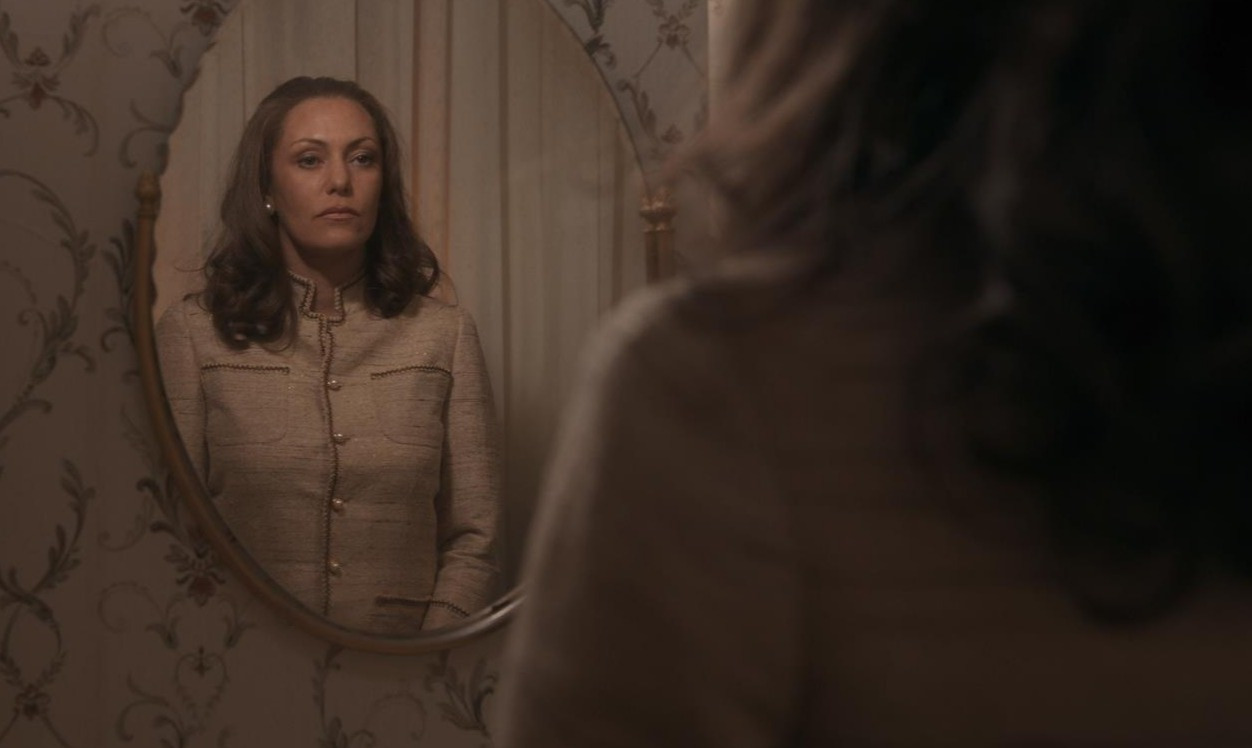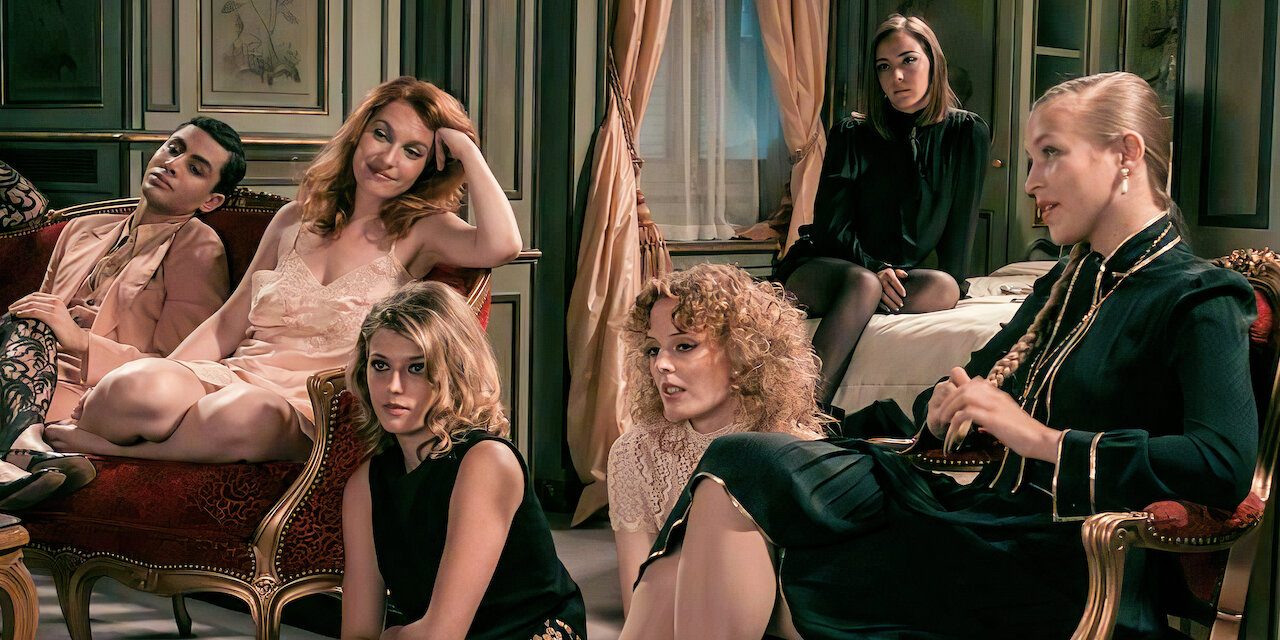‘Madame Claude’ is a French drama film that tells the story of France’s most celebrated brothel keeper. It tells the titular lady’s story through her own perspective and maps her rise and fall over the decades as her influence in society goes from a mere brothel-keeper to something of an aristocrat. Director Sylvie Verheyde has directed the film and stars Karole Rocher as the eponymous Madame Claude, whose growing influence during the 60s and 70s sees her gain a powerful position in both the world of politics and the criminal underworld. If you are curious to find out if the salacious icon is based on a real woman, a myth, or a legend, we can certainly provide some answers.
Is Madame Claude Based on a True Story?
Yes, ‘Madame Claude’ is based on a true story. It is a biographical film loosely based on the life of Fernande Grudet, also known by the moniker of Madame Claude, which she proudly carried. Grudet was born July 6, 1923, in Angers, France, and much about her past before her rise as the leader of a network comprising France’s top call girls is contentious information. Claude was an alleged self-idolizer and frequently told lies to manipulate her public image to her advantage.

She is known for mythologizing herself, but the movie delivers the narrative straight from Claude’s character, making it much more reliable and grounded in reality. Director Sylvie Verheyde has spoken about bringing the life of Madame Claude to the screen. She said that the current era is much more prepared to deal with the truth behind Claude’s story and denounce the stereotypes associated with working women in that era. She also revealed the Madame Claude was a role model for her own mother, a working-class woman in Paris.
Claude’s hard to trace past adds fuel to her mythical status. It has been widely reported that in her memoir, Claude claimed to be the daughter of an aristocrat and had received convent education. She was also enlisted in the Resistance during World War II and survived at a Nazi extermination camp. Much of this information remains unverified, and historians have disputed these claims. Contrastingly, it has also been stated that Claude hailed from a modest family but got caught in the wrong company upon her arrival in Paris and began working as a sex trader.

She built her sex trade empire from the ground up in the 1960s at 32 rue de Boulainvilliers in Paris’ 16th arrondissement, a particularly high-class area of the city. She handpicked the call girls dubbed the “Claudettes” or “Swans” and claimed to be selling an experience and not just sex, distinguishing her establishment from the others. She has famously quoted, “There are two things that people will always pay for: food and sex. I wasn’t any good at cooking.” Her high-profile clients are believed to include French politicians John F. Kennedy, Shah of Iran, and one-time head honcho of Fiat, Gianni Agnelli, among many others.
Claude frequently flirted with law enforcement and stayed out of trouble by passing along important intel obtained by her girls from her clients to the police and other authorities. Her charges were allegedly recruited by the CIA in 1973 to “keep up morale” during the Paris Peace Agreement. The late 70s saw a tumultuous period in her life as she was shot by one of the sex workers and charged with tax evasion. She moved to California and tried to emulate her business model in Hollywood with moderate success.
On her return to France in 1986, she was imprisoned for four months. In 1992, she attempted to revive her old business and was arrested again, serving several more months in prison before her trial. Fernande Grudet passed away on December 19, 2015, at the age of 92. All these elements are presented in the movie, wrapped into a thrilling narrative that, much like Claude’s life, makes it difficult to differentiate truth and fiction. Thus, the enigma and elusive nature of Madame Claude remains intact in this mostly faithful adaptation of her life.
Read More: Best French Movies on Netflix


You must be logged in to post a comment.